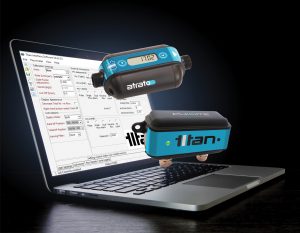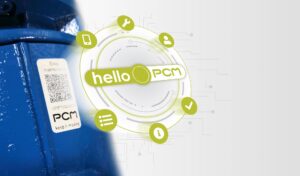Energy-Efficient Pump Designs
Recent advancements in pump designs have prioritized energy efficiency without compromising performance. Manufacturers leverage computational fluid dynamics (CFD) simulations and advanced engineering techniques to optimize pump designs. These developments focus on reducing hydraulic losses, improving impeller designs, and enhancing overall pump efficiency.
Efficiency enhancements contribute significantly to energy savings, making these pumps economically and environmentally beneficial. Variable frequency drives (VFDs) and intelligent control systems further complement these designs by adjusting pump speeds according to demand, resulting in substantial energy conservation.
Smart Pumping Systems
Integrating IoT and intelligent technologies into pumping systems has marked a paradigm shift in industrial fluid handling. IoT-enabled sensors and monitoring devices gather real-time data on pump performance metrics, including temperature, pressure, vibration, and energy consumption. This data is analyzed using predictive algorithms, enabling predictive maintenance strategies.
These smart pumping systems can anticipate potential faults or inefficiencies before they occur, allowing for timely maintenance and minimizing downtime. Remote monitoring capabilities facilitate proactive interventions and adjustments, optimizing system performance while reducing operational risks.
Magnetic Drive and Sealless Pumps
Innovations in magnetic drive and sealless pump technologies have addressed leakage, maintenance, and environmental safety concerns. Sealless pumps utilize magnetic coupling, eliminating the need for traditional shaft seals prone to wear and leakage. This design significantly reduces the risk of hazardous fluid leaks, enhancing operational safety and environmental compliance.
Moreover, sealless pumps require minimal maintenance compared to conventional sealed pumps, decreasing downtime and lowering lifetime operational costs. These pumps find applications in handling corrosive, toxic, or volatile fluids across various industries, ensuring reliability and safety.
Diaphragm and Peristaltic Pumps
Diaphragm and peristaltic pumps have witnessed significant advancements, particularly in industries requiring precise and contamination-free fluid handling. Diaphragm pumps, with improved designs and materials, offer exceptional accuracy and reliability, making them suitable for applications demanding precise dosing or handling sensitive fluids.
Peristaltic pumps, known for their gentle pumping action and contamination-free operation, have evolved with enhanced tubing materials and improved pump head designs. These advancements ensure greater durability, reduced maintenance requirements, and superior fluid handling capabilities, catering to pharmaceuticals, food processing, and biotechnology industries.
3D Printing and Advanced Materials
Using 3D printing technologies in pump manufacturing has created intricate components with optimized geometries. This innovation allows for rapid prototyping, customization, and the production of complex pump parts that are otherwise challenging to manufacture using traditional methods.
Additionally, advancements in materials science have led to the development of more durable, corrosion-resistant, and high-performance materials for pump construction. These materials enhance pump longevity, reduce maintenance needs, and expand the range of fluids pumps can handle, contributing to increased reliability and operational efficiency.
Future Trends and Challenges
The future of advanced pumping technologies in industrial fluid handling is poised for further innovation and integration. Challenges such as optimizing pump designs for specific applications, ensuring compatibility with diverse fluids, and addressing sustainability concerns by reducing environmental footprints remain focal points for ongoing research and development.
In conclusion, the latest innovations in advanced pumping technologies have significantly transformed industrial fluid handling processes. Energy-efficient designs, intelligent systems, sealless technologies, precision pumps, and advancements in materials showcase the strides made toward enhancing efficiency, reliability, and safety in fluid handling applications. As technology evolves, these innovations will continue to shape the landscape of industrial fluid handling, fostering sustainability and operational excellence across industries.
Source of Article



